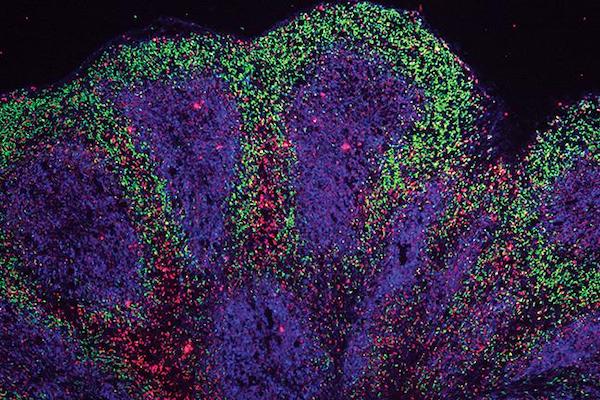Don't miss the latest stories
Tiny Brains Grown In Labs May Be Able To Treat Incurable Brain & Nerve Diseases
By Ell Ko, 09 Dec 2021
Subscribe to newsletter
Like us on Facebook

Image via the University of Cambridge
One of the best ways of figuring out a large problem’s solution is through modeling it. As it turns out, this theory can also be applied to something as nuanced and, at times, mysterious as the human brain.
A team of scientists at the University of Cambridge, England, may have just devised a new strategy of treating fatal diseases known as ALS/FTD. And that is through growing miniature iterations of human organs, which are called organoids.
Most commonly developed around ages 40 through 45, people with diseases that fall under the ALS/FTD umbrella are susceptible to things like paralysis, cognitive dysfunction, and memory loss. As of now, there is no concrete cure for either disease, and ALS can be fatal.
To grow these organoids, the scientists took cells from a patient’s skin to reprogram them back to their stem cell stage, an early developmental stage where the cells have the potential to develop into most types of cells. Then, these cells are grown in a cluster that somewhat resembles the organ the scientists are trying to replicate—in this case, the brain.
Having this “brain” isolated outside a living person’s head would then allow the team to observe and study it more closely. Cellular changes that may have led to the disease are observed in particular, as it’s believed that genetic mutations have a large part to play.
Some other areas that were researched include cell stress, damage to DNA, and changes in how the DNA is transcribed into proteins. All these changes have the potential to affect nerve cells and other brain cells, which are in charge of muscle movements and mental abilities—areas affected by ALS/FTD.
Described in a news release as being about the size of a pea, the brains grown by the Cambridge scientists have a longer “lifespan” than previous attempts at growing organoids. Past studies have seen mini-brains only being grown for a “relatively short” time frame, which can only capture a small part of the spectrum of dementia-related disorders.
In the scientists’ study published in the journal Nature Neuroscience, they detail growing these brains for 240 days from stem cells with the most common genetic mutation in ALS/FTD. It was also reported that in an unpublished study, the team managed to achieve 340 days.
Apart from understanding the disease more thoroughly, the organoids can also help the scientists to screen treatments that have the potential to slow the onset of the diseases, or even stop them entirely.
One such drug, GSK2606414, was found to relieve the accumulation of toxic proteins, cell stress, and the loss of nerve cells in relation to ALS/FTD. By doing so, it “blocks” one of the pathways contributing to the disease. Similar drugs are currently being tested to treat neurodegenerative diseases.
[via The Daily Beast, cover image via the University of Cambridge]
Receive interesting stories like this one in your inbox
Also check out these recent news
Artificial Intelligence





